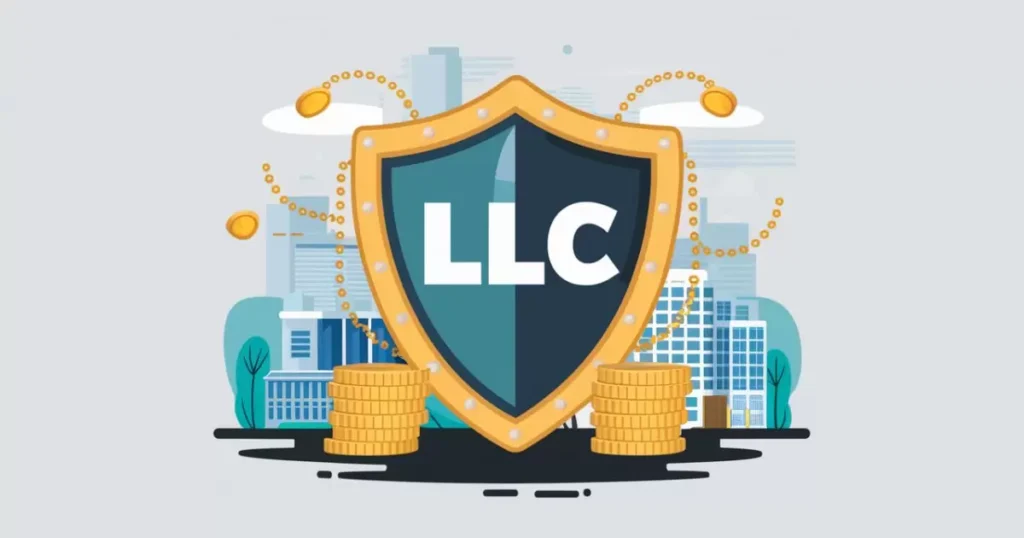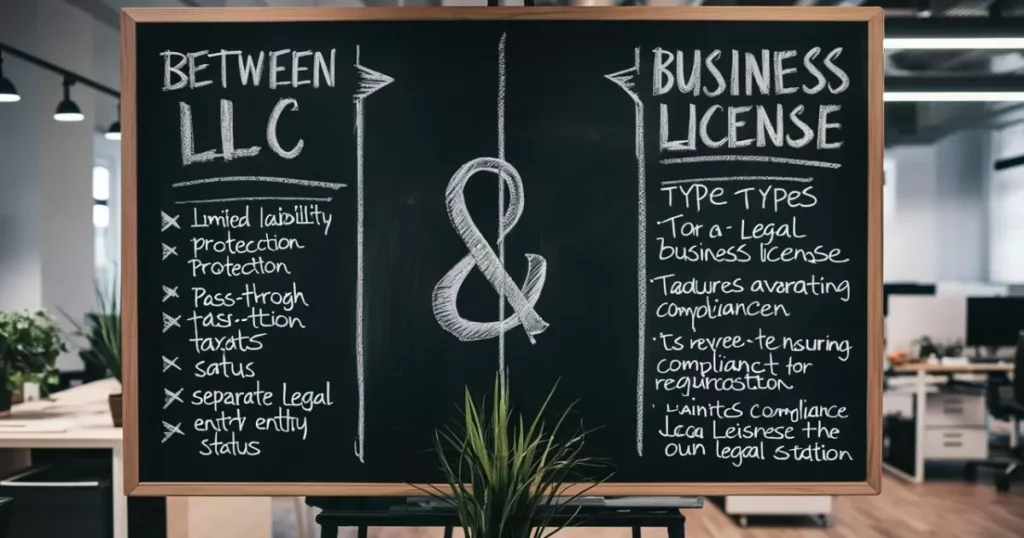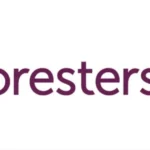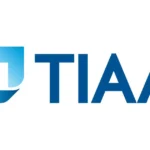Introduction
“An LLC offers personal asset protection and flexibility in business management, while a business license ensures legal operation within a specific area. Understanding both is essential for a successful and compliant business setup.”
An LLC is a type of business structure that offers protection to the owner’s personal assets. It stands for Limited Liability Company. On the other hand, a business license is a permit that allows you to operate your business legally within a specific area. These two are different but important for running a business.
Are you thinking about starting a business? Make sure you know the differences between an LLC and a business license. Understanding both can help you avoid legal problems and set up your business the right way.
In this article, we will explain what an LLC is, what a business license is, and how they differ. We will also guide you on how to form an LLC and get a business license. This information is important for anyone looking to start or run a successful business.
What is an LLC?

An LLC or Limited Liability Company is a popular business structure that provides the benefits of both a corporation and a partnership. It protects the owners’ personal assets from business debts and liabilities while offering flexibility in management and taxation.
This means that if the business incurs debt or is sued, the owners’ personal assets like their homes or cars are usually protected.
LLCs are relatively easy to set up and maintain. They require fewer formalities compared to corporations, such as less paperwork and fewer reporting requirements.
This simplicity makes LLCs an attractive option for small business owners and entrepreneurs who want to focus on growing their businesses rather than dealing with administrative burdens.
Another advantage of forming an LLC is the ability to choose how you want to be taxed. LLCs can be taxed as a sole proprietorship, partnership, S corporation, or C corporation, depending on what is most beneficial for the business and its owners.
This flexibility allows LLCs to optimize their tax situations and potentially save money.
What is a Business License?
A business license is a permit issued by a government agency that allows an individual or company to conduct business within a specific jurisdiction.
Obtaining a business license is a legal requirement for most businesses, ensuring that they comply with local regulations and zoning laws. It helps maintain order and safety within the community by regulating the types of businesses that can operate in certain areas.
The process of obtaining a business license varies depending on the location and the type of business. Generally, you will need to fill out an application, pay a fee, and meet specific requirements set by the local government.
This may include passing inspections, obtaining additional permits, and adhering to health and safety regulations.
Having a business license not only ensures compliance with the law but also adds credibility to your business. It shows customers and clients that you are a legitimate and responsible business owner. Additionally, operating without a business license can result in fines, penalties, and even the closure of your business.
Differences Between an LLC and a Business License

An LLC and a business license serve different purposes and are essential in their own right. An LLC is a business structure that offers liability protection and flexibility in management and taxation.
On the other hand, a business license is a regulatory requirement that grants permission to operate within a specific area. Understanding these differences is crucial for any business owner.
Forming an LLC involves state registration and the filing of articles of organization. This process provides legal recognition and protects the owners’ personal assets from business liabilities.
It is a one-time setup that remains valid as long as the business complies with state regulations and pays any necessary fees.
In contrast, obtaining a business license typically involves applying to local government agencies and paying annual fees. The requirements and costs vary depending on the location and industry.
A business license must be renewed periodically, and failing to do so can result in legal consequences, including fines and the inability to operate legally.
What Licenses Are Needed To Start A Cleaning Business?
The Purpose of an LLC
The primary purpose of an LLC is to protect the personal assets of its owners. In the event that the business faces financial difficulties or legal issues, the owners’ personal assets, such as their homes and savings accounts, are generally protected.
This liability protection is a significant advantage of forming an LLC, providing peace of mind to business owners.
An LLC also offers flexibility in management and taxation. Owners, known as members, can choose how they want the business to be managed and taxed.
This can include being taxed as a sole proprietorship, partnership, S corporation, or C corporation. This flexibility allows LLCs to adapt to the changing needs of the business and optimize their tax situation.
Additionally, forming an LLC can enhance the credibility and professionalism of a business. It shows customers, clients, and partners that the business is serious and committed to operating legally and responsibly. This can lead to increased trust and better business relationships.
The Purpose of a Business License
The purpose of a business license is to ensure that businesses comply with local laws and regulations. By obtaining a business license, a business owner demonstrates that they meet the necessary requirements to operate legally within a specific jurisdiction.
This helps maintain order and safety within the community and protects consumers from unregulated businesses.
A business license also provides a level of accountability. It allows government agencies to monitor and regulate businesses, ensuring they adhere to health, safety, and zoning regulations.
This oversight helps prevent illegal or harmful business practices and ensures that businesses operate in a manner that is safe and fair to the public.
Moreover, having a business license adds credibility to a business. It shows customers and clients that the business is legitimate and has met the necessary legal requirements to operate. This can build trust and confidence in the business, leading to increased customer loyalty and success.
How to Form an LLC
- Choose a Unique Business Name: Ensure the name complies with state regulations and is distinguishable from other registered business names.
- File Articles of Organization: Submit these documents to your state’s business filing agency, typically the Secretary of State.
- Create an Operating Agreement: Draft an agreement outlining the LLC’s ownership and management structure. While not always legally required, it helps prevent disputes and clarifies business operations.
- Obtain Necessary Business Licenses or Permits: Check state and local requirements and secure any required licenses or permits.
- Complete Paperwork and Pay Fees: Finalize all necessary forms and fees to officially register your LLC.
- Receive Certificate of Formation: Obtain this document to confirm your LLC’s registration. This certificate enables you to open a business bank account, get an Employer Identification Number (EIN) from the IRS, and start operating legally.
How to Obtain a Business License
- Research Requirements: Investigate the specific requirements for your location and industry, as regulations vary by city, county, and state.
- Check Local Government Sources: Consult local government offices or their websites for detailed information on what is needed for your business.
- Fill Out Application Form: Complete the application form, providing details about your business, such as its name, address, type, and owner information. Include any additional documentation required, such as proof of zoning compliance, health department approvals, or fire department inspections.
- Submit Application and Pay Fees: Submit your completed application along with the necessary fees to the local government.
- Receive and Display Business License: After your application is reviewed and approved, you will receive a business license, which must be displayed at your place of business.
- Renew License Annually: Remember that business licenses often require annual renewal. Failing to renew can result in fines or suspension of your business operations.
Common Misconceptions

One common misconception is that forming an LLC automatically grants permission to operate a business. While an LLC provides liability protection and a formal business structure, you still need a business license to operate legally in most jurisdictions.
It’s important to understand that an LLC and a business license serve different purposes and both may be necessary.
Another misconception is that obtaining a business license is a one-time process. In reality, most business licenses need to be renewed annually or periodically, depending on local regulations.
Failing to renew your business license can lead to fines, penalties, and even the closure of your business. Staying compliant with renewal requirements is crucial for ongoing legal operation.
People often think that only large businesses or certain industries need business licenses. However, most types of businesses, regardless of size, require some form of licensing.
This includes home-based businesses, freelancers, and small startups. It’s essential to check the specific licensing requirements for your business to ensure full compliance with local laws.
Legal Implications of Not Having an LLC or Business License
Operating without an LLC or a business license can lead to serious legal consequences. Without an LLC, business owners risk personal liability for business debts and legal actions.
This means that creditors can go after the owners’ personal assets, such as their homes and savings accounts, to satisfy business obligations.
Similarly, running a business without a proper business license can result in fines, penalties, and even the forced closure of the business. Local governments have the authority to shut down businesses that are not properly licensed, which can disrupt operations and damage your reputation.
Additionally, operating without a license can lead to legal disputes and increased scrutiny from regulatory authorities.
It’s also important to note that many business-related contracts and agreements may require proof of a business license. Without one, you might face difficulties in securing loans, leasing property, or forming partnerships.
Ensuring that you have both an LLC and the necessary business licenses helps protect your business and ensures smooth and lawful operations.
When You Need Both an LLC and a Business License
In many cases, businesses need both an LLC and a business license to operate legally. An LLC provides a formal business structure with liability protection, while a business license ensures compliance with local regulations.
For example, if you are opening a restaurant, you would need an LLC to protect your personal assets and a business license to meet health and safety standards.
Service-based businesses, such as contractors or consultants, often require both an LLC and a business license. The LLC offers liability protection and a professional image, while the business license ensures you are authorized to provide services in your area.
This dual requirement helps maintain professional standards and public safety.
Even online businesses may need both an LLC and a business license. The LLC provides legal protection and can enhance credibility with customers, while the business license ensures compliance with local laws regarding online sales and operations.
Checking the specific requirements for your type of business and location is essential to ensure full compliance.
Additional Tips
- Keep Detailed Records: Maintain copies of all documentation and correspondence, including:
- Articles of organization
- Operating agreement
- Business license application
- Any approvals or permits
- Organized records help with compliance and resolving potential issues.
- Consult with Professionals: Seek advice from legal or business experts during the process of:
- Forming an LLC
- Obtaining a business license
- Professionals can help navigate state and local regulations, meet requirements, and avoid common pitfalls.
- Review and Update Regularly: Regularly update your business information to reflect:
- Changes in business structure
- Location or operations
- Proactive management helps maintain compliance and prevent disruptions..
Pro and Cons
| Pros | Cons |
| Liability Protection: Shields personal assets from business debts and legal actions. | Costs: Involves state filing fees and ongoing compliance expenses. |
| Flexible Management: Allows flexibility in business management and operations. | Complexity: Can be complex for new owners due to flexible management and taxation options. |
| Potential Tax Benefits: Offers various tax options to optimize financial benefits. | Administrative Burden: Requires regular paperwork and compliance with state regulations. |
| Credibility: Adds a formal structure that enhances business credibility. | Limited Investment Options: May have fewer opportunities for raising capital compared to corporations. |
| Ease of Formation: Generally simpler and quicker to set up than a corporation. | Self-Employment Taxes: Members may face higher self-employment taxes compared to corporate structures. |
Answers To Key Questions
Question:What is the role of a business license in relation to an LLC?
Answer: A business license permits you to operate a specific type of business within a designated area, ensuring compliance with local regulations. Meanwhile, an LLC (Limited Liability Company) formalizes your business structure, providing legal recognition and liability protection.
Forming an LLC changes your business from a sole proprietorship into a recognized company, while the business license validates your right to conduct business legally in your location.
Question: Do I need both an LLC and a business license to operate my business?
Answer: Yes, in many cases, you need both an LLC and a business license. An LLC provides legal protection and formalizes your business structure, while a business license ensures compliance with local regulations and permits you to operate legally within your jurisdiction.
Question: Can I operate my business without an LLC if I have a business license?
Answer: Yes, you can operate with just a business license, but without an LLC, you lack the liability protection and formal business structure an LLC offers.
An LLC shields your personal assets from business liabilities, whereas a business license only allows you to conduct business legally.
Question: How often do I need to renew my business license?
Answer: Business licenses typically need to be renewed annually or periodically, depending on local regulations. Failure to renew your business license on time can result in fines, penalties, or the suspension of your business operations.
Question: What are the benefits of forming an LLC over a sole proprietorship?
Answer: Forming an LLC provides personal liability protection, which shields your personal assets from business debts and legal issues. It also offers flexibility in management and taxation options, unlike a sole proprietorship, which does not provide the same level of protection or formal structure.
Question: Can a single person form an LLC?
Answer: Yes, a single person can form a single-member LLC. This type of LLC provides the same liability protection and flexibility as a multi-member LLC but is owned and managed by just one individual.
Question: What documents are typically required to apply for a business license?
Answer: To apply for a business license, you usually need to submit an application form with details about your business, such as its name, address, and type. You may also need to provide additional documentation, such as proof of zoning compliance, health and safety permits, and payment of application fees.
Conclusion
Acknowledging someone’s achievement with a thoughtful congratulations message is a meaningful way to celebrate their success and boost their confidence.
By using the over 70 creative and sincere congratulatory messages provided in this article, you can ensure that your words truly resonate with the award winner and make them feel like a champion.
Understanding the distinct roles of an LLC and a business license is essential for any business owner. An LLC provides valuable liability protection and management flexibility, while a business license ensures compliance with local regulations and enhances credibility. Both elements are crucial for operating a business smoothly and legally.
By following the advice and tips outlined here, you can effectively congratulate award winners and navigate the complexities of forming an LLC and obtaining a business license. Your efforts in these areas will help you celebrate achievements, protect your business, and maintain a professional and legally compliant operation.










